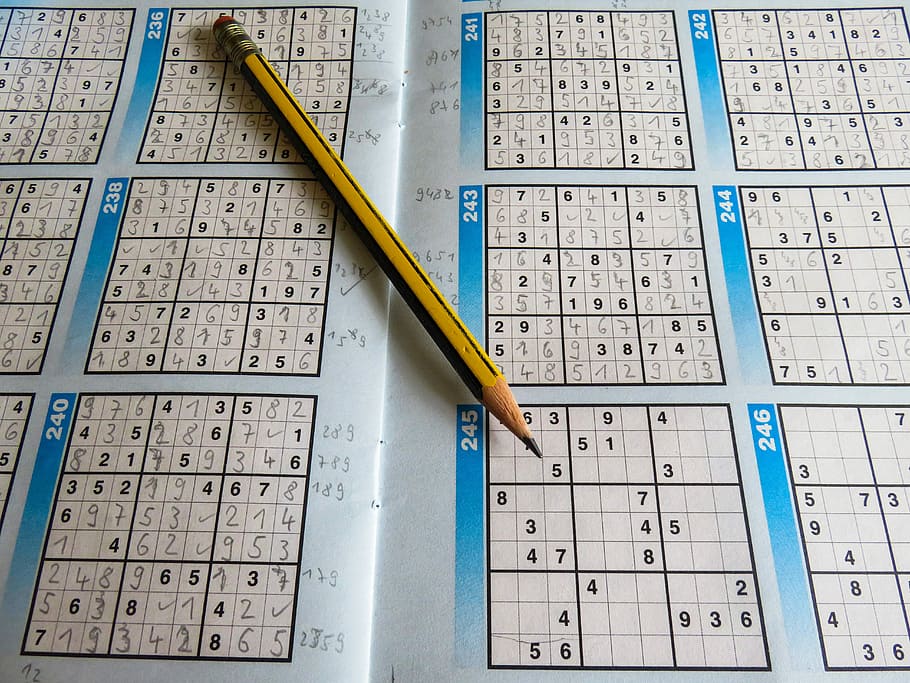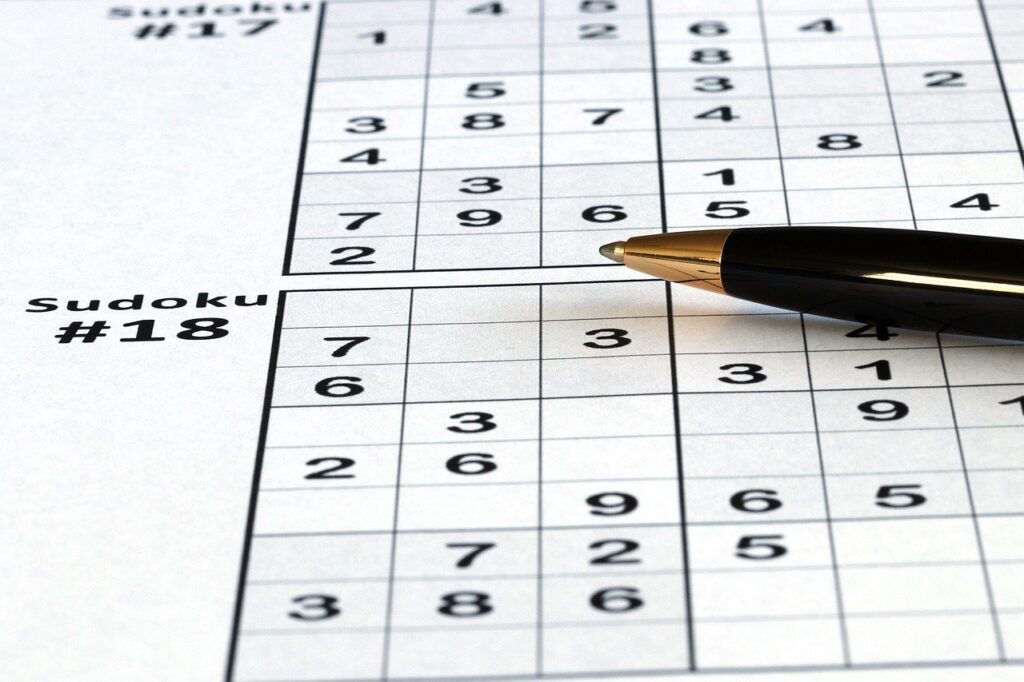We know that Sudoku is a logic-based number game, the objective of which is to complete a 9×9 grid with the numbers 1 to 9. Each row, column, and 3×3 sub-grid can only contain the same number once. This unique game has become extremely addictive over the years and when Sudoku became a world hit in 2005, it was estimated that it was the biggest phenomenon since the Rubik’s Cube in the 1980s.
Sudoku is based on an early mathematical analysis concept designed in 1782. The American inventor, Howard Garns modified the concept slightly to create the numbers game called “Number Place” in 1979, when the game gained its popularity.

In 1984, a Japanese publisher began distributing sudoku. The name “sudoku” is abbreviated from the Japanese “suuji wa dokushin ni kagiru”, which means “the numbers (or digits) must remain single”.
Sudoku went viral in the Western world in 2004. The very first Sudoku World Championships were hosted in 2006 in Lucca, Italy, and have been organize every year since then.
Here are some facts about Sudoku listed for our readers…we are sure that not many, including the avid players, were aware of these:

- One cannot complete all the possible Sudoku puzzles in one lifetime. There are far more than 1 billion valid Sudoku puzzles present.
- Many people believe that Sudoku is a mathematical game. However, in reality, it is a game of pure logic. It can be played with numbers, symbols, letters, or pictures and requires no mathematics skills whatsoever.
- Sudoku is an addiction, and for once, a good one. It is known to offer its enthusiasts the following health benefits:
- Depression, panic, and anxiety relief
- Lowered blood pressure
- Reduced emotional over-thinking
- Focused mind and thought pattern for those with Alzheimer’s and Dementia
- Alertness and mental development as brain exercises
- Thomas Snyder, from the USA, set the Guinness World Record on 20 May 2006 for “the fastest time to complete a Sudoku in 1 minute and 29.93 seconds.
- Arto Inkala, a Mathematician from Finland, is known to have come up with the “world’s hardest Sudoku” in 2012.
Normally, Sudoku difficulty is graded with 1-5 stars, with 1 being easy and 5 being very hard. According to Britain’s The Telegraph newspaper, Inkala’s Sudoku could be graded 11 on the difficulty scale.

6. Marcel Danesi Ph.D. released an article on Psychology Today that breaks down the very reasons why so many people become so easily addicted to Sudoku. In this article, he states,“… Sudoku has a simple structure, a simple set of rules for solving it, but it still presents a challenge. Unlike the crossword, however, it requires no “external knowledge” (names of people, events, linguistic knowledge, etc.). It just requires us to place symbols (usually the first nine digits) in cells in a logical way.”

7. The year after Sudoku went viral, the pencil sales were said to have gone up by around 700%. Although there is no hard evidence to support that Sudoku was definitely or solely responsible for this increase, many believe that Sudoku addiction was the very reason for this mark up.
8. The New York Times crossword editor, in 2005, predicted that the Sudoku mania wouldn’t last.He claimed that the obsession with Sudoku would subside in just a few months “the craze, judging by history, will last four, five, six months, and then it will taper off”.
To his surprise, the obsession with the game only increased, and he later, in 2006, admitted that he had been wrong, and that Sudoku had the staying power of crossword puzzles.
9. Sudoku accidentally obstructed justice by interfering with a court case (many claim more) in Australia. 5 of the Jurors were found playing Sudoku sneakily instead of paying attention to the evidence being presented.
Report: “In June 2008, a drug trial was aborted in Australia, costing hefty sums of money, after it came to light that the jury forewoman was playing Sudoku for around half the trial period of 3 months.”

10. British Airways absolutely prohibits its flight attendants from attempting to solve Sudoku puzzles during either take-off or landing.

11. Sudoku puzzles are played by so many and so often that no one knows exactly how many individuals play it. Assessing the exact number seems impossible, because people are playing in different formats- on paper, on the internet or on downloaded versions. There seems to be no way to assimilate this data!
We know that the world is obsessed with Sudoku, yet, if you feel that a friend or a family member of yours somehow escaped this addiction, perhaps these fascinating facts will help the oblivious ones to take the plunge, and possibly trespass your devotion too. So, go ahead and let them have a peek at this piece.
Happy Playing Sudoku!!